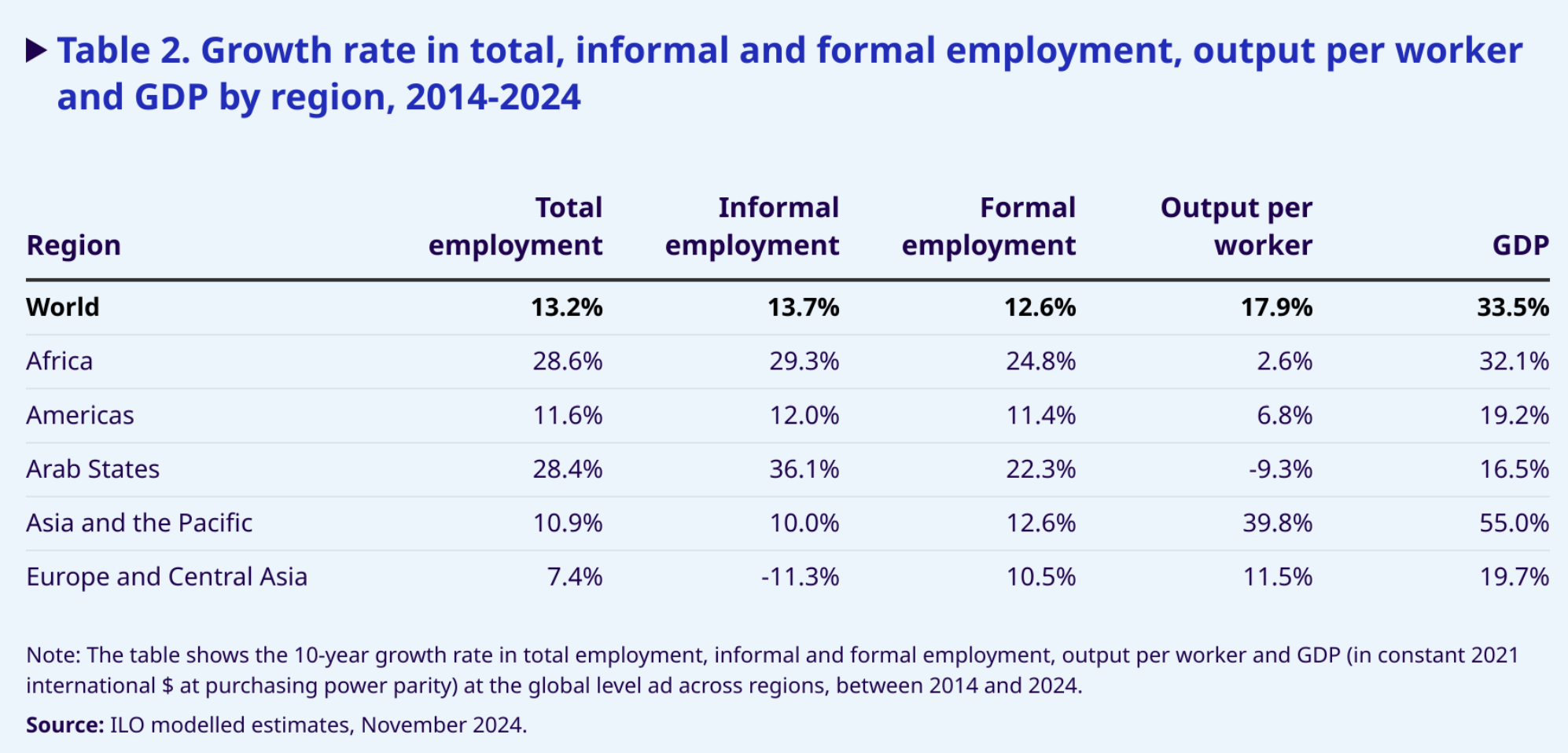Global employment forecast downgraded by up to 7 million jobs in 2025, amid rising uncertainty.
Global unemployment remained at a historic low of 5% in 2024 and is projected to stay the same in 2025, according to the International Labour Organization’s latest World Employment and Social Outlook. However, this figure hides significant issues, as job creation is slowing and inequalities are increasing.
The ILO revised its 2025 employment forecast downward, now projecting 53 million new jobs globally, 7 million fewer than expected. This change is based on the International Monetary Fund’s updated global growth domestic product of 2.8% for 2025, down from 3.2%.
“We know that the global economy is growing at a slower pace than we had anticipated it would. Our report now tells us that if geopolitical tensions and trade disruptions continue, and if we do not address fundamental questions that are reshaping the world of work, then they will most certainly have negative ripple effects on labour markets worldwide,”
- Gilbert F. Houngbo, ILO Director General
Although global unemployment remains at its lowest since ILO data collection began in 1991 and is expected to drop slightly to 4.9% in 2026, the slowdown in job creation shows growing uncertainty. Employment growth could slow to 1.5% in 2025, down from 1.7% in the previous year.
Some countries and groups are most affected. Youth unemployment is high at 12.6%, more than double the global average. While parts of Europe have seen positive employment trends, South Africa faces high unemployment, with a rate of 31.9% in the fourth quarter of 2024.
The report highlights the global interconnection of jobs linked to U.S. consumer demand, with around 84 million jobs in 71 countries directly or indirectly reliant on American spending. Most of these jobs (56 million) are in the Asia-Pacific region. However, Canada and Mexico are most at risk, with 17.1% of their jobs vulnerable to trade disruptions.
The ILO has called for bold and coordinated action to tackle the challenges ahead. Its recommendations include:
- Strengthening social protection systems
- Investing in education and skills development
- Promoting social dialogue between workers, employers, and governments
- Building inclusive labour markets that ensure technological advances benefit all.
The ILO recommends some innovative financing tools, including leveraging migrant remittances, to support development and job creation in lower-income countries.
As the world grapples with economic uncertainty, the ILO warns that without meaningful reforms, progress in reducing global unemployment could stall or worse, reverse.
“The findings of this report on the employment landscape are sobering, but they can also act as a roadmap for the creation of decent jobs. We can make a difference, and we can do so by strengthening social protection, investing in skills development, promoting social dialogue, and building inclusive labour markets to ensure that technological change benefits all. And we must do so with urgency, ambition, and solidarity.”
- Gilbert F. Houngbo, ILO Director General
Essential resources for representing workers in a changing world of work:
Negotiating retrenchment
Negotiating the future of work
Trade unions organising and bargaining in value chains
Bargaining for gender equity
Negotiating jobs in the clothing and textiles industry
Automation, data mining and the future of retail jobs








